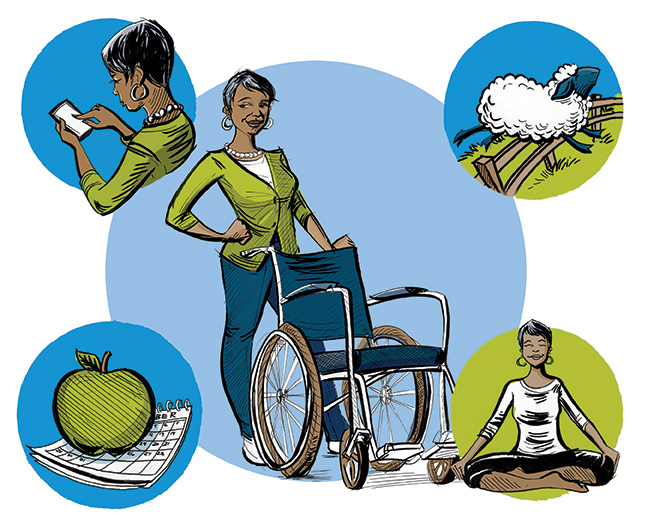November is National Family Caregivers Month, when we recognize the more than 34 million unpaid caregivers and countless caregiver professionals throughout the U.S. They are the unsung heroes of the health care industry, providing care to spouses, family members, friends, and even neighbors. But the physical, emotional, and financial demands can take a major toll. To avoid caregiver burnout, follow these tips from the Family Caregiver Alliance®, a community-based nonprofit that offers resources for families and friends providing long-term care for loved ones at home.
ASK FOR HELP:
It can be counterintuitive to ask for help, but know that you are not alone and help may be just a call or click away. There are many affordable options and funding mechanisms for professional in-home care, and having just a little extra help can actually take a major load off the caregiver’s plate.
REST UP:
Sleep can make the difference between calmly navigating the challenges of the day or snapping when the stress feels like too much. If the recommended eight hours of sleep per night isn’t realistic, try to get more restful sleep by avoiding screens (phones, computers, televisions) before bedtime, reading a book before you fall asleep, or try a 20-minute power nap during the day for a boost in mental clarity.
AN APPLE A DAY:
Proper nutrition can do wonders for your physical and mental health. When we are busy and stressed, it’s much easier to eat unhealthy. We swing through the closest drive through or grab the nearest candy bar, but getting the proper balance of macronutrients, vitamins, and water can increase energy levels and help stave off illness.
PHYSICAL AND MENTAL EXERCISE:
Try physical exercise, yoga, or meditation. Just a short walk around the park is enough to feel the endorphin effect from exercise. Mindfulness practices like yoga and meditation can train your brain to relax, slow down, and be present.


